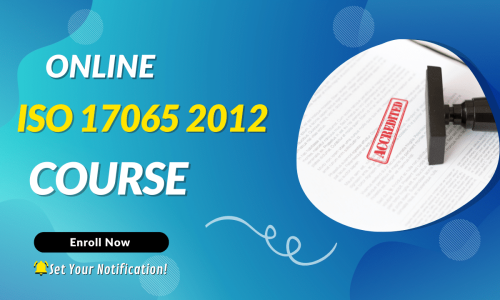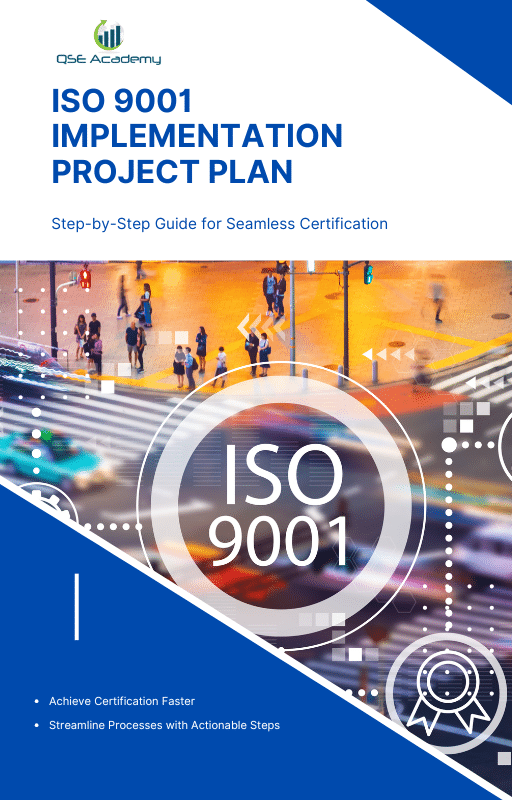What is ISO 9001 stand for?
What does ISO 9001 stand for?
Have you ever come across the term “ISO 9001” and wondered what it actually stands for? Don’t worry—you’re not alone! It’s one of those phrases that sounds official and important, but unless you’re already familiar with it, it can feel a bit mysterious. So, let’s break it down together, step by step.
At its core, ISO 9001 is a globally recognized standard for quality management systems. But what does that really mean? Well, think of it like a rulebook or a set of best practices that helps businesses ensure they’re consistently delivering high-quality products or services. Whether you’re running a small bakery or a massive tech company, ISO 9001 provides a framework to help everything run smoothly and meet customer expectations.
And why is it called ISO 9001? Great question! The “ISO” part comes from the International Organization for Standardization, which is an independent body that creates standards to make businesses, products, and services more reliable worldwide. As for the “9001,” that’s just the specific standard within the ISO family that focuses on quality management. It’s part of a broader series of standards called ISO 9000, all aimed at improving quality in various ways.
By the end of this article, you’ll have a crystal-clear understanding of what ISO 9001 stands for, why it’s important, and how it impacts businesses everywhere. So, let’s dive in and uncover everything you need to know!
Understanding the Basics of ISO 9001
Now that we’ve scratched the surface, let’s dig a little deeper into what ISO 9001 stands for. To fully understand it, we need to break it down into its two key parts: “ISO” and “9001.” Don’t worry, it’s simpler than it sounds!
What Does “ISO” Mean?
First things first, what does ISO 9001 stand for when it comes to the “ISO” part? Well, “ISO” stands for the International Organization for Standardization. It’s a global organization that creates standards to help businesses and industries work better, safer, and smarter. Fun fact: “ISO” isn’t an abbreviation! It comes from the Greek word “isos,” which means equal. The idea is that these standards create a level playing field for everyone, no matter where they are in the world.
Think of ISO as the people who write the ultimate guidebooks for businesses. Whether it’s about ensuring product quality, making workplaces safer, or even environmental management, they’ve got a standard for it. And ISO 9001? That’s their star player when it comes to quality management systems.
What About the “9001”?
Now, let’s tackle the “9001.” This number isn’t random—it’s actually part of the ISO 9000 family, which is all about quality management. The “9001” standard is the most widely used and focuses on how organizations can create processes that ensure consistent quality in what they deliver.
Here’s an example: imagine a company that makes your favorite brand of coffee beans. To make sure every bag of beans meets the same high standards, they need to have reliable processes in place, from sourcing the beans to packaging them. ISO 9001 provides the framework to make that happen. It’s like having a recipe for success, but instead of making cookies, it’s about running a quality-driven business.
So, Why Does It Matter?
Understanding what ISO 9001 stands for isn’t just about knowing the name—it’s about understanding why it’s so valuable. ISO 9001 is all about consistency, reliability, and trust. When a company is ISO 9001 certified, it means they’ve committed to meeting a recognized standard for delivering quality. And as customers, that gives us confidence. Whether you’re buying a product or using a service, ISO 9001 helps ensure you’re getting what you were promised.
So, next time you hear someone mention ISO 9001, you’ll know it’s more than just a fancy title. It’s a global standard that helps businesses deliver quality—and who doesn’t love quality? Let’s keep exploring to see why this standard is such a big deal!
Why Does ISO 9001 Matter?
So now that we’ve covered what ISO 9001 stands for, let’s talk about why it’s such a big deal. Sure, it’s a global standard for quality management systems, but what does that actually mean for businesses and, more importantly, for you as a customer? Let’s dive into why ISO 9001 really matters.
Making Quality a Priority
At its core, ISO 9001 is all about one thing: quality. Whether it’s the product you buy, the service you use, or the overall experience you get, quality is what keeps us coming back. Businesses that follow ISO 9001 are essentially saying, “We care about delivering the best we can, every single time.” It’s like a promise they make—not just to their customers, but also to themselves.
Imagine you’re ordering a smartphone online. You want it to arrive on time, work perfectly, and meet all the specs it promised. A company that follows ISO 9001 has processes in place to make sure that happens. It’s not just about the final product; it’s about every step along the way, from design to delivery, running like a well-oiled machine.
Building Trust Through Consistency
One of the coolest things about ISO 9001 is that it helps businesses create consistency. Have you ever bought something, loved it, and then went back for more only to find the quality wasn’t the same? Frustrating, right? Well, ISO 9001 helps businesses avoid that.
Consistency is a huge part of what ISO 9001 stands for. It’s about making sure that customers know exactly what to expect every time they interact with a business. Whether it’s a local bakery or a global tech giant, ISO 9001-certified businesses follow the same principles to deliver reliable results. And that consistency builds trust—which is priceless in today’s competitive world.
A Competitive Edge for Businesses
For businesses, ISO 9001 isn’t just about making customers happy (although that’s a huge part of it). It’s also about standing out in the market. Think about it—if you’re choosing between two companies, and one is ISO 9001 certified while the other isn’t, who would you trust more? That little badge of certification tells you that the company takes quality seriously and has gone the extra mile to prove it.
Plus, in many industries, being ISO 9001 certified isn’t just a nice-to-have—it’s a must-have. For example, some clients, particularly in government or large corporations, will only work with businesses that are ISO 9001 certified. So, having this certification can open doors to bigger opportunities.
Why It Matters to You
Now you might be wondering, “What does ISO 9001 stand for in my daily life?” Well, it’s everywhere! From the food you eat to the appliances in your home and even the services you rely on, ISO 9001 plays a role in ensuring quality and reliability. It’s the invisible framework that helps keep things running smoothly, whether you realize it or not.
So, when you see that a business is ISO 9001 certified, it’s like a little seal of trust. You know they’ve put the effort into following a global standard, and that means you can count on them to deliver. And in a world full of choices, that kind of assurance is pretty important, don’t you think?
Let’s keep exploring how this standard works and why it continues to be a game-changer for businesses and customers alike!
How Does ISO 9001 Work in Practice?
So now we know what ISO 9001 stands for and why it matters, but how does it actually work? How do businesses put this standard into action to ensure they’re delivering consistent quality? Don’t worry—it’s not as complicated as it might sound. Let’s break it down in a way that makes sense.
The Core Principles of ISO 9001
To really understand how ISO 9001 works, you need to know about its foundation: the seven quality management principles. These are like the guiding lights that businesses follow to meet the standard. Here’s a quick rundown of the most important ones:
- Customer Focus: Everything revolves around meeting (and exceeding) customer needs. After all, happy customers are what keep businesses running!
- Leadership: Strong leadership sets the tone for quality and accountability at every level of the organization.
- Continual Improvement: Businesses that adopt ISO 9001 commit to always getting better—whether it’s in their processes, products, or services.
Here’s an example to make it clearer: imagine a restaurant that adopts ISO 9001 principles. They focus on understanding what customers love (customer focus), ensure the management team sets quality standards (leadership), and constantly tweak recipes and processes to improve (continual improvement). These principles work together like building blocks to create a better experience for everyone.
The Certification Process
If you’re wondering how a company becomes ISO 9001 certified, here’s how it usually works. First, they review their existing processes to see how they stack up against the ISO 9001 requirements. Then, they make adjustments to align with the standard. This might mean documenting workflows, training employees, or improving quality checks.
After that, an external auditor comes in to assess the business. Think of this auditor as a quality detective—they’re there to ensure the business is following the ISO 9001 framework. If everything checks out, the company gets its ISO 9001 certification, which proves they’ve met the standard. Pretty cool, right?
What Does ISO 9001 Look Like in Action?
Let’s make it even more relatable. Picture a company that manufactures bicycles. Without ISO 9001, their process might be inconsistent—one bike might have perfectly aligned gears, while another has a wobbly wheel. But with ISO 9001 in place, they follow clear processes to check every part of the bike at every stage of production. This ensures that each bike meets the same high standard before it reaches the customer.
Now, whether you’re riding that bike or buying something completely different, ISO 9001 helps ensure you get a product or service that’s reliable and well-made.
A Standard for All Types of Businesses
One of the best things about ISO 9001 is that it works for all kinds of organizations—big or small, local or global. From tech startups to hospitals, any organization that wants to improve its processes and deliver consistent quality can benefit from this standard. That’s why what ISO 9001 stands for is so universally relevant—it’s a standard for better quality, no matter where you are or what you do.
By now, you’re probably starting to see how ISO 9001 isn’t just a set of rules—it’s a practical framework that businesses use every day to ensure they’re delivering value. Let’s keep going and uncover who can benefit most from adopting this standard!
Who Can Benefit from ISO 9001?
By now, we’ve explored what ISO 9001 stands for and how it works, but who is it actually for? Is it just for big corporations with huge teams and endless resources? Definitely not! One of the best things about ISO 9001 is how flexible and adaptable it is. Let’s talk about who can benefit most from this powerful standard.
Small Businesses and Startups
You might think that ISO 9001 is only for massive organizations, but that couldn’t be further from the truth. Small businesses and startups can gain so much by implementing this standard. Imagine you’re a small local bakery. ISO 9001 can help you streamline your processes, ensure consistent quality in every loaf of bread, and keep your customers coming back for more.
For smaller businesses, ISO 9001 is like a secret weapon. It helps you punch above your weight, showing customers (and potential clients) that you’re serious about quality. Plus, it sets a solid foundation for growth, so as your business expands, you’re ready to handle bigger challenges without losing sight of what matters—delivering value to your customers.
Large Corporations
For larger organizations, ISO 9001 can feel like a no-brainer. When you’re managing multiple teams, locations, or even countries, having a consistent framework for quality becomes essential. Think about a global tech company launching a new product. Without standardized processes, there’s a risk that some factories might cut corners, leading to unhappy customers.
ISO 9001 ensures that every part of the business is working toward the same high standard, no matter how complex the operations are. That’s why so many big names across industries are ISO 9001 certified—it helps them maintain their reputation and meet customer expectations on a global scale.
Non-Profit Organizations
It might surprise you to learn that ISO 9001 isn’t just for profit-driven companies. Non-profits can also benefit greatly from adopting this standard. Why? Because it helps them manage resources more efficiently and deliver services effectively to the people they serve. Whether it’s a charity coordinating disaster relief or a community center organizing events, ISO 9001 ensures they’re running like a well-oiled machine.
Government Agencies
Even public sector organizations can use ISO 9001 to their advantage. Governments around the world adopt this standard to improve the quality of their services and ensure transparency and accountability. After all, citizens want the same thing as customers: consistent, reliable, and high-quality results.
Anyone Who Values Quality
Ultimately, what ISO 9001 stands for is something that every organization can benefit from—quality, consistency, and trust. Whether you’re a solopreneur, a multinational company, or a non-profit, if delivering high-quality products or services is a priority, ISO 9001 can help you get there.
What makes this standard even more incredible is how adaptable it is. It doesn’t matter what industry you’re in—manufacturing, healthcare, education, technology, or hospitality—ISO 9001 can be tailored to fit your needs. That’s why it’s become one of the most widely used standards in the world.
So, if you’re wondering whether ISO 9001 could work for your organization, the answer is almost always yes. It’s not just a technical guideline—it’s a practical tool to help any organization thrive. Ready to learn more about how ISO 9001 can transform processes and create positive change? Let’s keep going!
Common Misunderstandings About ISO 9001
Even though ISO 9001 is one of the most widely recognized standards in the world, it’s often misunderstood. That’s why it’s important to clarify some of the common myths and misconceptions. After all, truly understanding what ISO 9001 stands for means cutting through the confusion and seeing the standard for what it really is—a practical tool for improving quality. Let’s tackle a few of the most common misunderstandings together.
Myth 1: ISO 9001 Is Just for Big Companies
One of the biggest myths is that ISO 9001 is only for large corporations with big budgets and complex operations. This couldn’t be further from the truth! ISO 9001 is designed to work for organizations of all sizes, from small family-owned businesses to large multinational companies.
For example, if you run a local coffee shop, ISO 9001 can help you refine your processes—like sourcing beans, training baristas, and ensuring a consistently great cup of coffee for your customers. It’s not about size; it’s about quality, and that’s something any business can strive for.
Myth 2: ISO 9001 Certifies Products
Here’s another misconception: some people think ISO 9001 certifies the quality of a product. That’s not quite right. What ISO 9001 stands for is a standard for processes, not individual products. It ensures that the systems behind the scenes—the way things are designed, produced, and delivered—are efficient, consistent, and focused on quality.
For instance, a company that manufactures clothing might use ISO 9001 to ensure that every step of their production process, from fabric selection to stitching, follows best practices. This doesn’t mean every single shirt is individually certified—it means the process for making those shirts meets a globally recognized quality standard.
Myth 3: ISO 9001 Is Too Complicated
Some people think ISO 9001 is overly technical or hard to implement. But in reality, it’s meant to be practical and flexible. Sure, there’s some work involved in setting up the system, but the goal isn’t to create unnecessary complexity. Instead, ISO 9001 is about simplifying and improving processes to make businesses run more smoothly.
Think of it like organizing your closet. At first, it might take some effort to sort through everything and decide where things should go. But once it’s done, finding what you need becomes faster and easier. That’s exactly how ISO 9001 works for businesses—it’s about putting systems in place that make things better in the long run.
Myth 4: ISO 9001 Guarantees Perfection
Let’s clear this up: being ISO 9001 certified doesn’t mean a company will never make mistakes or have issues. What it does mean is that the company has systems in place to catch and address problems quickly. ISO 9001 is about continual improvement, not instant perfection.
For example, imagine a logistics company that follows ISO 9001. If a delivery is delayed, the standard ensures there’s a process to figure out what went wrong, fix it, and prevent it from happening again. That’s the real power of ISO 9001—it’s not about being flawless, but about constantly getting better.
Why Understanding These Misconceptions Matters
Understanding these myths helps paint a clearer picture of what ISO 9001 stands for. It’s not just a fancy title or an impossible-to-reach standard—it’s a practical, achievable way for businesses to improve quality, gain customer trust, and grow. Whether you’re a business owner, an employee, or just a curious consumer, knowing the truth about ISO 9001 helps you appreciate how it shapes the products and services we rely on every day.
Now that we’ve cleared up some of the confusion, let’s wrap things up and revisit why ISO 9001 is so important in the world of quality management!
Why Should You Care About What ISO 9001 Stands For?
By now, you’ve learned a lot about what ISO 9001 stands for—a global standard for quality management systems that businesses use to ensure consistency, reliability, and customer satisfaction. But let’s take a step back and ask: why should this matter to you? Whether you’re a business owner, an employee, or just someone who enjoys high-quality products and services, ISO 9001 plays a bigger role in your life than you might think.
ISO 9001 Impacts the Products and Services You Use Daily
Think about the products you use or the services you rely on every day. Whether it’s the food you buy at the grocery store, the car you drive, or the phone in your hand, ISO 9001 often has a role in ensuring those things meet a high standard of quality. When a company adopts ISO 9001, it means they’ve committed to putting processes in place that help them deliver consistent results.
For example, the car manufacturer who made your vehicle likely used ISO 9001 principles to ensure each car rolling off the production line met the same safety and performance standards. Knowing what ISO 9001 stands for can give you confidence that the businesses behind your favorite products are following best practices.
For Businesses, ISO 9001 Is a Game-Changer
If you’re a business owner or manager, understanding what ISO 9001 stands for can be a game-changer for your company. It’s not just about achieving a certification; it’s about creating a culture of quality. When your team follows the framework ISO 9001 provides, you’re not just meeting customer expectations—you’re exceeding them.
Plus, being ISO 9001 certified opens up new opportunities. Many clients, especially in industries like manufacturing, technology, or government, prefer to work with companies that are certified. It’s a way to stand out in a crowded market and show that you take quality seriously.
ISO 9001 Builds Trust Between Businesses and Customers
Trust is everything, isn’t it? When you see that a company is ISO 9001 certified, it’s like a little badge of reassurance. It tells you that they’ve gone the extra mile to create systems that focus on quality, consistency, and improvement. This trust benefits both customers and businesses—customers feel confident in their choices, and businesses build lasting relationships with their clients.
For example, if you’re hiring a contractor for home renovations, wouldn’t you feel more confident knowing they follow ISO 9001 principles? It’s the same for businesses in almost every industry—ISO 9001 creates a shared language of trust and quality.
Quality Matters to Everyone
At the end of the day, what ISO 9001 stands for is something that impacts all of us, whether we realize it or not. It’s about more than just business—it’s about creating a world where the products we use and the services we rely on are safe, consistent, and reliable. And in a world where quality can sometimes feel hit or miss, that’s a pretty big deal.
So, whether you’re shopping for groceries, hiring a contractor, or running a business, knowing what ISO 9001 stands for helps you appreciate the effort that goes into delivering quality. It’s not just a standard—it’s a commitment to doing things better, for everyone involved.
Now that we’ve explored why ISO 9001 matters so much, let’s tie it all together and see how this global standard continues to shape the way we work and live. Ready? Let’s wrap things up!
Conclusion: What Does ISO 9001 Stand For?
So, what does ISO 9001 stand for at the end of the day? It’s more than just a series of letters and numbers—it’s a symbol of quality, consistency, and trust. ISO 9001 stands for a globally recognized standard that helps businesses create processes to deliver high-quality products and services, no matter their size, industry, or location.
Think of it like a roadmap for success. ISO 9001 guides businesses toward improving how they operate, ensuring customer satisfaction, and building a culture of continual improvement. It’s about more than checking boxes—it’s about creating lasting value for both the organization and its customers.
Whether you’re a business owner striving to improve your operations, an employee wanting to understand your company’s commitment to quality, or a customer looking for trustworthy products and services, knowing what ISO 9001 stands for gives you insight into how quality is achieved and maintained.
At its heart, ISO 9001 isn’t just a technical standard—it’s a tool that makes the world a little more reliable. It ensures that businesses of all kinds—from small local shops to massive global brands—can meet the expectations of customers like you and me. And when you see that a company is ISO 9001 certified, you know they’ve put in the work to do things the right way.
So, the next time you hear someone ask, “What does ISO 9001 stand for?” you can confidently answer: It stands for a commitment to quality, a promise of consistency, and a global standard that benefits everyone. Quality matters, and ISO 9001 helps make it happen.
Looking for More Resources on ISO 9001?
Looking for ISO 9001 Resources Tailored to Your Industry?
If this article helped clarify ISO 9001, take the next step with our industry-focused tools designed to simplify your certification journey:
📦 ISO 9001 Documentation Kits by Industry: Whether you’re in manufacturing, construction, consulting, or healthcare — we have complete, ready-to-use documentation tailored for your sector.
🎓 Online ISO 9001 Training: Learn how to implement ISO 9001 effectively with our easy-to-follow video lessons, real-world examples, and practical exercises.
📋 ISO 9001 Checklist: Download our step-by-step checklist to ensure your QMS meets all the 9001:2015 requirements from start to finish.
These resources are crafted to save you time, reduce stress, and help you achieve certification with confidence. Choose your industry and start now!

make ISO standards less intimidating and more approachable for everyone.
Whether it’s ISO 9001, ISO 22000, or the cosmetics-focused ISO 22716,
I’ve spent my career turning complex jargon into clear, actionable steps
that businesses can actually use. I’m not here to call myself an expert—I prefer “enthusiast” because I truly love what I do.
There’s something incredibly rewarding about helping people navigate food safety and quality management systems
in a way that feels simple, practical, and even enjoyable.
When I’m not writing about standards, you’ll probably find me playing Piano 🎹, connecting with people, or diving into my next big project💫.
- I’m an engineer specialized in the food and agricultural industry
- I have a Master’s in QHSE management and over 12 years of experience as a Quality Manager
- I’ve helped more than 15 companies implement ISO 9001, ISO 22000, ISO 22716, GMP, and other standards
- My clients include food producers, cosmetics manufacturers, laboratories, and service companies
- I believe quality systems should be simple, useful, and efficient
- Outside of work, I play piano and love learning something new every day
Let’s make ISO less about stress and more about success! 🙏






















